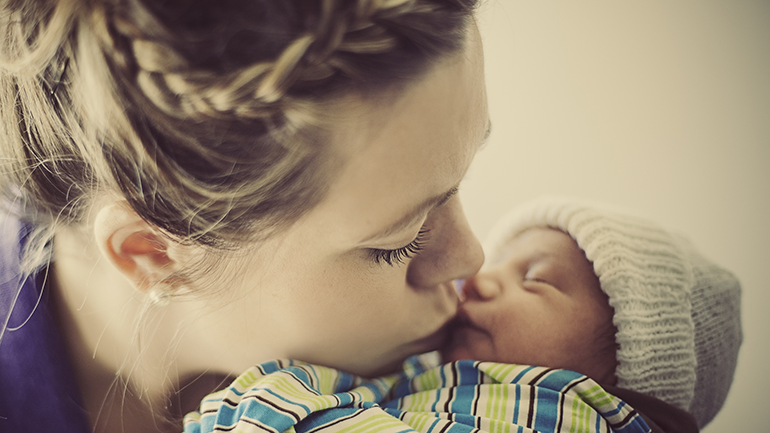
Many parents are unaware that when they kiss their child they can pass harmful bacteria from their mouth to their baby’s mouth, putting their child at an increased risk for cavities.
When Carla took her son in for his first dental checkup, she got an unwelcome surprise. Not only did her 14-month-old have two cavities in his baby teeth, but the dentist suggested he might have got them from her.
Like Carla, many parents are unaware that when they kiss their child they can pass harmful bacteria from their mouth to their baby’s mouth, putting their child at an increased risk for cavities.
Bacteria is most commonly transferred through saliva when:
- Sharing eating utensils
- Blowing on food
- Pre-chewing baby’s food
- Licking a baby’s pacifier to clean it
- Kissing baby on the mouth
The reality is parents cannot completely eliminate these behaviours and so saliva transfer between parent and child is almost unavoidable. But, what parents can do is have any of their own outstanding cavities filled, have dental cleanings regularly, maintain a good oral hygiene routine at home, and cut back on saliva-transferring behaviours with their infants. If parents have active decay in their mouth, they should be extra cautious.
Other tips to prevent tooth decay in your baby
- Keep your baby's mouth clean by gently wiping their gums with a clean baby washcloth. Once you see the first teeth, gently brush using a soft baby toothbrush and a small amount (about the size of a grain of rice) of fluoride toothpaste.
- Encourage drinking from a cup between six to 12 months of age. Drinking from a cup is less likely to cause liquid to collect around the teeth.
- Limit the amount of sweet or sticky foods your child eats, such as candy, gummies or cookies.
- Serve juice only during meals or not at all. If juice is given, limit to half a cup a day.
- Never put your child to bed with a bottle or food. This not only exposes your child's teeth to sugars but can also put your child at risk for ear infections and choking.
- Make an appointment to visit the dentist by your baby’s first birthday or six months from the date their first tooth comes in.
